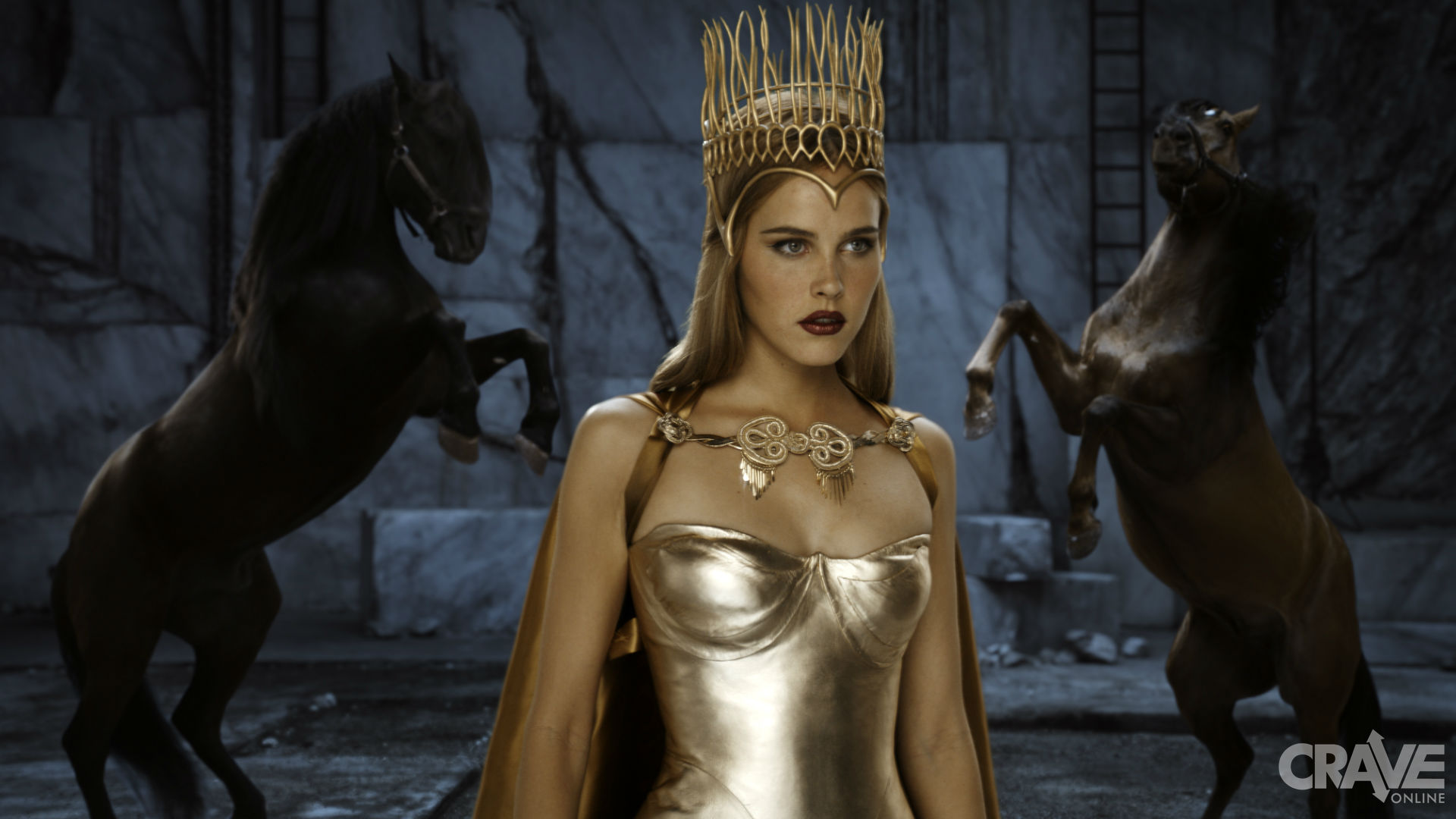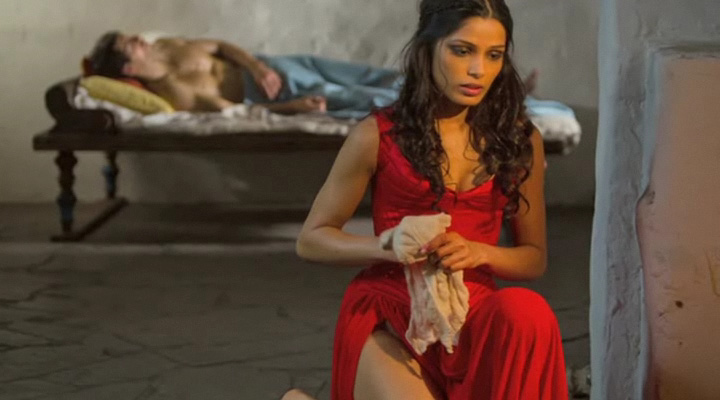|
Immortals
Reviewed
by
Sophie Whin on
November 16th, 2011
Universal Pictures presents
a film directed by
Tarsem
Singh
Screenplay
by
Vlas Parlapanides and Charley Parlapanides
Starring:
Henry
Cavill, Freida Pinto, Mickey Rourke and Stephen Dorff
Running
Time:
110 mins
Rating:
MA
Released: November 24th,
2011
|
2/10
|
|
Tarsem
Singh’s Immortals is an epic that fails spectacularly
in every genre it
attempts to tackle. Be it dialogue, characters or even design, the film is a clunky trial in how to lose an
audience in ten minutes and unfortunately does not have nearly enough
redeeming
factors to keep our attention to its conclusion. Set in
Ancient Greece, Immortals follows the trials and
tribulations of the muscle-bound
hero Theseus (Henry Cavill). Having declared war on the gods, King
Hyperion
(Mickey Rourke) sends the Greek world into chaos as he searches for the
ultimate weapon, which would release the savage Titans and thereby
bring about
an end to the reign of the Olympians. The gods themselves are prevented
from
meddling in the affairs of their mortal counterparts, with Zeus (Luke
Evans)
himself dealing deadly punishments to those who disobey. It is only
through our
hero that the gods can have any chance of survival, with Zeus secretly
training
Theseus before the events of the film. Inadvertently caught up in the
battle
between Hyperion and the gods, Theseus saves the life of the Oracle
Phaedra
(Freida Pinto), who is the only person with knowledge of the weapon’s
whereabouts. Fighting alongside the couple is the thief Stavros
(Stephen
Dorff), and together the trio race against time to prevent not only the
destruction of the gods but also the destruction of their very
livelihood.

Known
internationally for his previous film’s The Cell (2000)
and The Fall (2006), Tarsem Singh has been lauded for
his technical
precision and creativity in formulating ideas to screen. However, in
his most
recent offering we are left with some pretty pictures but no substance.
The
film is tagged as being backed by the producers of 300 (2006),
which shares similarities with Immortals, including an
oversaturation of CGI and a focus away from
cohesive storytelling in favour of gratuitous blood flow. Unlike 300, the film does not have the luxury
(the excuse) of having a graphic novel at its basis and is therefore
the
brainchild of writers who failed Ancient history in high school. Immortals is riddled with classical
Greek motifs and yet they all seem out of place with the multitude of
gold-clad
gods, dirty armies and sombre environments. Large chunks of scenery
look like
they’ve been lifted right out of a video game (see God of
War 3) and the abrupt changes of scope make for a dizzying
mess. We are hard-pressed to understand what is actually happening and
where
everything is taking place. A notable example is after the death of
Theseus’
mother we are transported from a dark coastal village to a blindingly
deserted
salt mine in the middle of nowhere. What just happened? How much time
has passed?
Where are they in comparison to Hyperion? We have no idea and Singh
makes no
effort to answer any of these questions.

Mickey
Rourke as the villain Hyperion is
perhaps the film’s only saving grace, but even he can’t stop this train
wreck
from fading into obscurity. Tough talking and deadly, his character is
chilling,
if slightly hard to understand. He seems to mumble half his lines
whilst
chewing through several food delicacies (did you say steak?). Henry
Cavill and
Freida Pinto provide the usual eye-candy with Cavill doing the best he
can with
such a cardboard script. He definitely has star quality and it will be
interesting to see him take on the Man of Steel in next year’s Superman
revamp.
The Olympians give little grounding to the plot, however it must be
acknowledged that Isabel Lucas as Athena did not make me want to gouge
my eyes
out in horror, with her end fighting scene almost enjoyable. The
Christian
allusions throughout the piece only round out the stylised jumble that
is Immortals and in retrospect seems at
odds with the mythological material. The audience can recognise a Greek
legend
when they see one, so there is no reason to bombard us with
contemporary
Christian imagery in order to ease the discomfort of the semi-unknown.
Tarsem
Singh’s film should not be taken
seriously and in comparison to his previous works it is by far his
weakest. The
script reads like a first draft and the over sensation of violence will
make
even those with an iron stomach fill queasy. Immortals begins
and ends with the Socrates quote ‘All men’s souls
are immortal, but the souls of the righteous are immortal and divine’.
Instead it
should have begun and concluded with ‘Story. What story? Blood,
nakedness and
SFX is what it’s all about’.
|